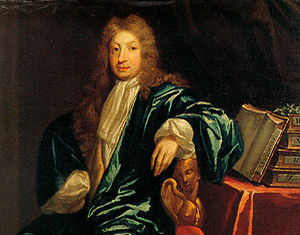
The excerpts from
The
Interesting Narrative of the Life of Olaudah Equiano, or Gustavus Vassa, the
African focused on the dreadful Middle Passage and Equiano’s travail in
obtaining his freedom. There are different types of slavery our class has
encountered throughout our readings. There is the slavery of Aphra Behn’s
Oroonoko which fulfills the requirements
of Locke’s acceptable form of slavery: slavery through conquest, however,
Oroonoko makes it clear that slavery as
a form of commercialism is not correct. Another form of slavery is that of
marriage. This is described in Daniel Defoe’s
Roxana by the titular character who knows that in marrying, her
equality to her husband disappears in accordance to the law. There is the
slavery of the poor to the rich as is seen in Jonathan Swift’s “Modest
Proposal.” I think the word slavery to all these writers was not just the
traditional form of slavery but the concept of absolute authority upon another
human being, this perhaps a retaliation against the monarchy of the times. With
the advent of science continuously making breakthroughs and the phenomenon of
the universe being deciphered, why should men be ruled under one, if the
knowledge of the All is now available? I think Samuel
Johnson (mirroring Locke) put it
best: “The sum of the argument is this:--No man is by nature the property of another.”
With the current black market slave trade in Libya it is important to remember that
we too are closing the shackles around their ankles for we are doing nothing to
stop it.
 The excerpts from The
Interesting Narrative of the Life of Olaudah Equiano, or Gustavus Vassa, the
African focused on the dreadful Middle Passage and Equiano’s travail in
obtaining his freedom. There are different types of slavery our class has
encountered throughout our readings. There is the slavery of Aphra Behn’s Oroonoko which fulfills the requirements
of Locke’s acceptable form of slavery: slavery through conquest, however, Oroonoko makes it clear that slavery as
a form of commercialism is not correct. Another form of slavery is that of
marriage. This is described in Daniel Defoe’s Roxana by the titular character who knows that in marrying, her
equality to her husband disappears in accordance to the law. There is the
slavery of the poor to the rich as is seen in Jonathan Swift’s “Modest
Proposal.” I think the word slavery to all these writers was not just the
traditional form of slavery but the concept of absolute authority upon another
human being, this perhaps a retaliation against the monarchy of the times. With
the advent of science continuously making breakthroughs and the phenomenon of
the universe being deciphered, why should men be ruled under one, if the
knowledge of the All is now available? I think Samuel
The excerpts from The
Interesting Narrative of the Life of Olaudah Equiano, or Gustavus Vassa, the
African focused on the dreadful Middle Passage and Equiano’s travail in
obtaining his freedom. There are different types of slavery our class has
encountered throughout our readings. There is the slavery of Aphra Behn’s Oroonoko which fulfills the requirements
of Locke’s acceptable form of slavery: slavery through conquest, however, Oroonoko makes it clear that slavery as
a form of commercialism is not correct. Another form of slavery is that of
marriage. This is described in Daniel Defoe’s Roxana by the titular character who knows that in marrying, her
equality to her husband disappears in accordance to the law. There is the
slavery of the poor to the rich as is seen in Jonathan Swift’s “Modest
Proposal.” I think the word slavery to all these writers was not just the
traditional form of slavery but the concept of absolute authority upon another
human being, this perhaps a retaliation against the monarchy of the times. With
the advent of science continuously making breakthroughs and the phenomenon of
the universe being deciphered, why should men be ruled under one, if the
knowledge of the All is now available? I think Samuel 

Comments
Post a Comment